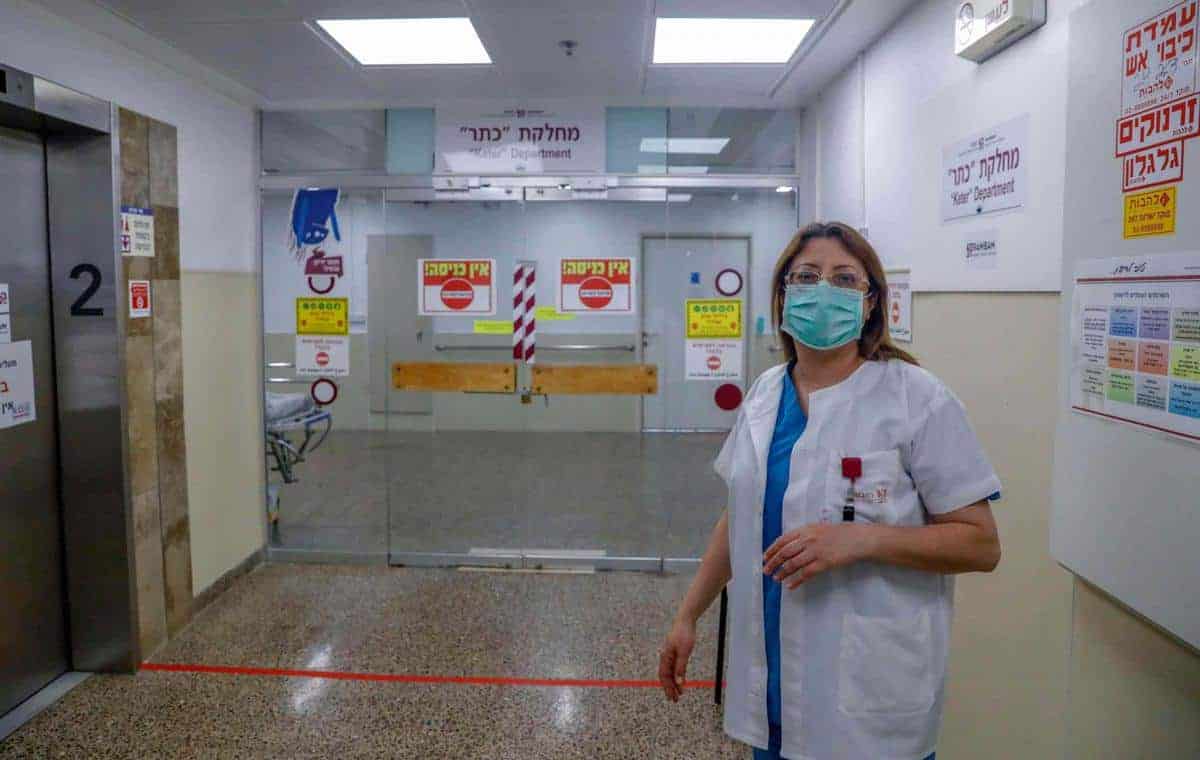HAIFA, ISRAEL: Each morning since February, Israeli Arab doctor Khitam Hussein has woken up before dawn to rush to a job on the frontline of the country’s fight against the novel coronavirus.
Hussein, 44, has emerged as a prominent member of Israel’s often marginalized Arab community which is now playing an essential role in confronting an unprecedented health crisis.
She heads the outbreak response at the Rambam Hospital near Haifa, the largest hospital in northern Israel, and has been working 12-hour days for months.
“It is incredibly difficult work, no day is like another. Our lives have been turned upside down”, she said.
Israel has registered more than 15,000 cases of COVID-19, with 202 deaths.
Lasting memories of the Pandemic
Hussein said that amid the global pandemic, individual moments with patients have created some lasting memories. She recalled an elderly couple arriving at the hospital, both seriously ill with the virus. As the husband’s condition deteriorated rapidly, they allowed the couple a final moment together.
“We allowed his sick wife, despite her condition, to speak to her husband — to say goodbye,” she said. The husband died shortly after.
“As a human it’s difficult, all the medical staff were saddened”, she said.
About Israeli Arabs
Israeli Arabs are the descendants of Palestinians who remained on their land in 1948, the year the Jewish state declared its independence. They make up around 20 percent of the population and are heavily represented in the medical profession.
In 2018, the government of Israeli Prime Minister Benjamin Netanyahu pushed through parliament a controversial law declaring Israel the nation-state of the Jewish people. It sparked fury among Israeli Arabs and other minorities who saw it as denying their right to live in the country.
Symbol of Arabs, Jews coexistence
The health crisis has reignited the debate, with frontline medical workers highlighting the role Arabs play in Israeli society. Famous Israeli artists have held online fundraisers for the Rambam hospital, holding it up as a symbol of coexistence between Arabs and Jews.
Hussein has personally been highlighted multiple times.
Yair Lapid, head of the largest opposition party in Israel’s parliament and a critic of the nation-state law, said Netanyahu had consistently ignored the contribution of Arab medics.
“If you’re an Arab doctor or nurse in a hospital who hasn’t shut an eye in weeks, you should know that they won’t amend the nation-state law,” Lapid said in a recent tweet.
Netanyahu, a right-wing premier in power since 2009, is currently finalizing a coalition government with his centrist election rival Benny Gantz, a former Lapid ally. Lapid broke with Gantz when the ex-military chief decided to seek an alliance with Netanyahu.
For Hussein all that matters is saving lives
For Hussein all that matters is saving lives — whether a patient is Arab or Jewish. She was born in the northeastern town of Rameh, but now lives in the city of Karmiel in the Galilee.
The coronavirus crisis has taken a heavy toll on her family life, she said.
For nearly two months she hasn’t visited her aging mother for fear of transmitting the virus. Her husband, a lawyer, is at home with their two daughters, aged eight and 10.
Hussein said being apart from the girls is the toughest part, knowing how fast they are growing up. When she gets home after a long shift, she immediately puts her clothes in the wash and showers before seeing her daughters.
“I arrive late most of the time when they are already asleep but sometimes they wait up for me”, she said.
Some of her colleagues no longer go home at all due to the long hours or for fear of infecting family members.
“I have stopped myself from seeing my parents, but I couldn’t stop seeing my daughters,” Hussein said.
“I cannot describe how I miss them”, she added.
Recently her younger daughter Hala called while she was in the middle of a hectic shift. “She was crying down the phone, saying ‘I miss you, when are you coming home?”

